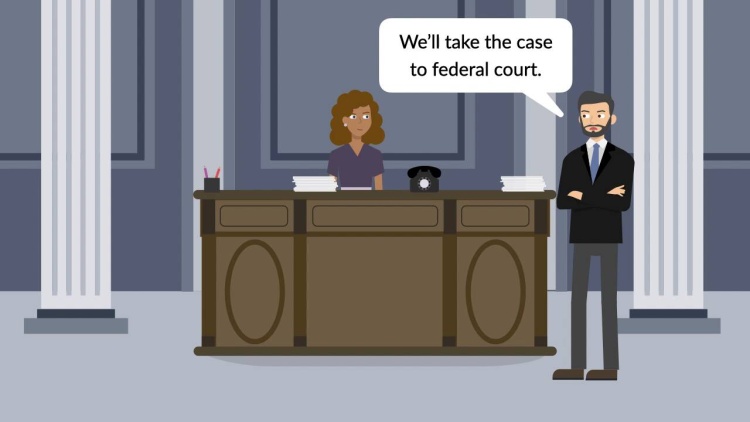Lehman v. Revolution Portfolio L.L.C.
United States Court of Appeals for the First Circuit
166 F.3d 389 (1999)
- Written by DeAnna Swearingen, LLM
Facts
Barry Lehman (plaintiff) and Stuart A. Roffman were beneficial-interest holders in the Farm Street Trust (the Trust). The Trust took out a $2.8 million loan from First Mutual Bank for Savings (the Bank) (defendant) and defaulted. Roffman and Lehman had guaranteed the loan, and Lehman put up property as collateral. The Bank foreclosed on the property. Lehman sued for rescission in state court, arguing that the Bank had negligently made the loan based on Roffman’s fraud. Later, the Bank went under. The Bank’s insurer, the Federal Deposit Insurance Corporation (FDIC), removed the case to federal court and was substituted as the defendant. The FDIC amended its answer and counterclaimed against Lehman, with the court’s permission because six months had elapsed. The FDIC counterclaimed against Lehman, as guarantor, for the balance of the loan. The FDIC also filed a third-party complaint against Roffman, seeking indemnification and contribution and asserting a claim on the loan. After Roffman filed his answer, the FDIC requested summary judgment. Roffman moved to strike the complaint against him. Then Lehman entered bankruptcy proceedings and requested a stay; the lawsuit was dismissed without prejudice. The FDIC asked for a decision on its summary judgment motion. The court reinstated the third-party complaint, denied Roffman’s motion to strike, dismissed the claims for indemnity and contribution without prejudice, and granted the FDIC summary judgment. The FDIC moved to have Revolution Portfolio LLC (RP) substituted as the real party in interest, as the Bank’s assignee, and the court granted the request. Roffman objected to the substitution and also moved for relief from the summary judgment order. The motion was denied. Roffman appealed to the United States Court of Appeals for the First Circuit.
Rule of Law
Issue
Holding and Reasoning (Selya, J.)
What to do next…
Here's why 907,000 law students have relied on our case briefs:
- Written by law professors and practitioners, not other law students. 47,100 briefs, keyed to 996 casebooks. Top-notch customer support.
- The right amount of information, includes the facts, issues, rule of law, holding and reasoning, and any concurrences and dissents.
- Access in your classes, works on your mobile and tablet. Massive library of related video lessons and high quality multiple-choice questions.
- Easy to use, uniform format for every case brief. Written in plain English, not in legalese. Our briefs summarize and simplify; they don’t just repeat the court’s language.





